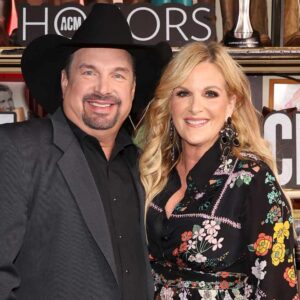In recent months, Meghan Markle and Prince Harry have faced significant backlash over their involvement in the upcoming U.S. election, drawing criticism from various corners of the public and media alike.
Their decision to engage politically has sparked a heated debate about the appropriateness of royal figures participating in political matters,
particularly given their status as former members of the British royal family.
This situation has raised questions about the boundaries of their roles, the expectations placed upon them, and the implications of their actions on their public image and philanthropic endeavors.
Meghan and Harry’s foray into the political arena, particularly in the context of the U.S. election, has not gone unnoticed.

Critics argue that their involvement blurs the lines between activism and partisanship, suggesting that it undermines the neutrality that is traditionally expected from members of the royal family.
Historically, the British monarchy has maintained a policy of political neutrality, avoiding any overt endorsements or involvement in political campaigns.
By stepping into the American political landscape, Meghan and Harry are challenging this convention, which has led to mixed reactions among their supporters and detractors.
One of the primary points of contention revolves around the couple’s use of their platform to encourage voter registration and civic engagement.
While their intention appears to be rooted in promoting democratic participation and awareness, many see it as a politicization of their status that could alienate potential supporters.
Critics argue that by positioning themselves as advocates for specific political causes or candidates, they risk losing the nonpartisan goodwill that they have cultivated through their charitable work.
This backlash raises critical questions about how they can effectively balance their advocacy efforts with the public’s perception of their roles as former royals.
Moreover, the timing of their political engagement has also come under scrutiny.
With the U.S. election approaching, some observers have accused Meghan and Harry of seeking to capitalize on the heightened political climate for personal gain or publicity.

This perception of opportunism has fueled criticisms that their motivations are less about genuine concern for social issues and more about maintaining relevance in the public eye. The notion that their actions could be viewed as self-serving undermines their message and detracts from the causes they aim to support, which include mental health awareness, gender equality, and social justice.
In addition to the backlash from the public, there are also implications for their relationships with the royal family. The British monarchy has long been associated with a certain level of decorum and traditional values, and Meghan and Harry’s bold political moves may create tensions within the family. As they navigate this new chapter in their lives, the couple must consider how their actions will be perceived by family members and the broader royal institution. The potential for a rift to develop between them and other royals is a concern, as it could further complicate their already strained relationships.

Despite the criticisms, Meghan and Harry have expressed a commitment to using their platform to effect positive change. They believe that civic engagement and advocacy are crucial components of a healthy democracy. In recent public statements, they have emphasized the importance of voting and encouraging others to participate in the democratic process. Their efforts to promote voter registration, particularly among young people and marginalized communities, are framed as essential steps toward creating a more equitable society. This highlights the couple’s intention to make a meaningful impact, even in the face of mounting criticism.
Another layer to this situation is the intense media scrutiny that both Meghan and Harry continue to endure. Their every move is analyzed and reported, often with sensational headlines that amplify the public’s reaction to their choices. This relentless coverage can skew perceptions, making it challenging for the couple to communicate their message authentically. The media landscape has played a significant role in shaping the narrative surrounding their political involvement, often focusing more on the controversy than on their intentions or the issues they are championing.

The backlash against Meghan and Harry’s political engagement also reflects broader societal divisions regarding celebrity involvement in politics. Many public figures have taken stands on various issues, using their platforms to advocate for change. However, the royal couple’s unique position complicates this dynamic. Their royal heritage adds a layer of expectation that they remain above the political fray, leading to greater scrutiny when they choose to engage. This dichotomy illustrates the challenges faced by those who occupy a space between celebrity and traditional roles, particularly when navigating contentious political landscapes.
As Meghan and Harry continue to carve out their identities as advocates and public figures, their engagement in the U.S. election is likely to remain a focal point of discussion. They must contend with the backlash while staying true to their values and mission. How they navigate this situation will be crucial in shaping their legacy and influence in both the U.S. and the global arena. The couple has already faced numerous challenges, and their ability to respond to criticism with grace and resilience will be essential as they pursue their goals of creating positive change.

In conclusion, the backlash against Meghan Markle and Prince Harry’s involvement in the U.S. election underscores the complexities of their positions as former royals engaging in political matters. While their intention to promote civic engagement is commendable, the implications of their actions have sparked significant debate. The couple must navigate a delicate balance between advocacy and public perception, all while remaining true to their mission of effecting positive change in the world. As they continue this journey, their ability to handle criticism and maintain their focus on their causes will play a crucial role in determining their impact and legacy moving forward.
Follow us to see more useful information, as well as to give us more motivation to update more useful information for you.





